Publications
-
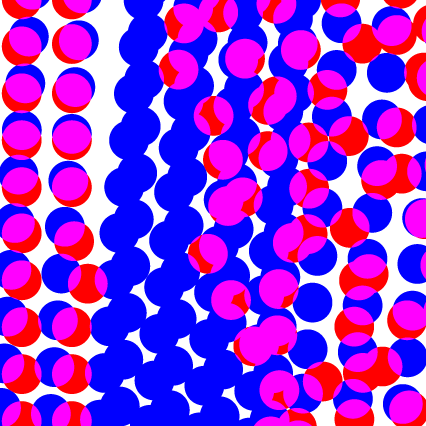 Being “in-tact” and well: metaphysical and phenomenological annotations on temporal well-being
Being “in-tact” and well: metaphysical and phenomenological annotations on temporal well-beingWell-being depends not only on what happens but also on when it happens. There are temporal aspects of well-being, and to a large extent those aspects are about relative timing—about being “in-tact.” On the one hand, there is a perspectival aspect about being in-tact with one’s past, present, and future or, in a less involved sense, with one’s life as a whole. On the other hand, there is a synchronization aspect of being in-tact; and this aspect occurs on different levels: It might be about the alignment between different temporal domains—such as time as individually perceived and physical or intersubjective time. Or it might be about a single domain, especially the inner dynamics of individual time. The danger of not experiencing and acknowledging the relational character of these different timings likely leads to a substantial loss in the variety of human experience. Important aspects of subjective and intersubjective experience might fade away. The present paper discusses these aspects of well-being along the lines of distinctions and concepts prominently used in the metaphysics and the phenomenology of time. Thus, the paper also aims to complement the existing literature by bringing together important strands of current philosophical research.
-
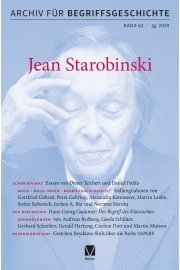 Begriffsgeschichte und Einzelwissenschaften
Begriffsgeschichte und EinzelwissenschaftenIn Carsten Dutt, Hubertus Busche & Michael Erler (Hrsg.) Schwerpunkt: Jean Starobinski (Archiv für Begriffsgeschichte Band 62 (Jg. 2020)). Hamburg: Felix Meiner Verlag. ISBN: 978-3-7873-3946-4
-
 Die Zeit in ihrer Vielfalt denken. Anmerkungen aus philosophischer Perspektive
Die Zeit in ihrer Vielfalt denken. Anmerkungen aus philosophischer PerspektiveThe aim of this paper is to sketch an approach for integrating the historiography of the sciences and of philosophy. More precisely, the paper suggests a method for investigating interactions within transdisciplinary constellations of researchers working in philosophy and in the exact sciences. I start off by introducing specific notions of analogy, variation, and conceptual space which provide the main ingredients of this method. The notion of a conceptual space, as well as other characteristics of the present approach, are adaptations from so-called constellation research. Originally, constellation research was developed for the historiography of philosophy – especially in the context of the origins of German idealism. However, as I will argue in the second half of the paper, it is adaptable to the historiography of science, especially of the exact sciences. To support this claim and to illustrate the integrative power of the present approach, I will (i) compare the notions of a constellation and a conceptual space with Ludwik Fleck’s notions of a »thought collective« and a »style of thought«, (ii) critically evaluate the distinction between contexts of discovery and of justification in a historiographical context, and (iii) relate the notions of analogy and variation, as introduced in the first part of the paper, to current debates about what is sometimes called »invariantism« in the philosophy of science.
-
 Rethinking Drug Design in the Artificial Intelligence Era
Rethinking Drug Design in the Artificial Intelligence EraArtificial intelligence (AI) tools are increasingly being applied in drug discovery. While some protagonists point to vast opportunities potentially offered by such tools, others remain sceptical, waiting for a clear impact to be shown in drug discovery projects. The reality is probably somewhere in-between these extremes, yet it is clear that AI is providing new challenges not only for the scientists involved but also for the biopharma industry and its established processes for discovering and developing new medicines. This article presents the views of a diverse group of international experts on the ‘grand challenges’ in small-molecule drug discovery with AI and the approaches to address them.
-
 Neues Wahrnehmen
Neues WahrnehmenManege für Architektur (Heft 2: Automationen). 36-37. https://mfa.one/manege-2/
-
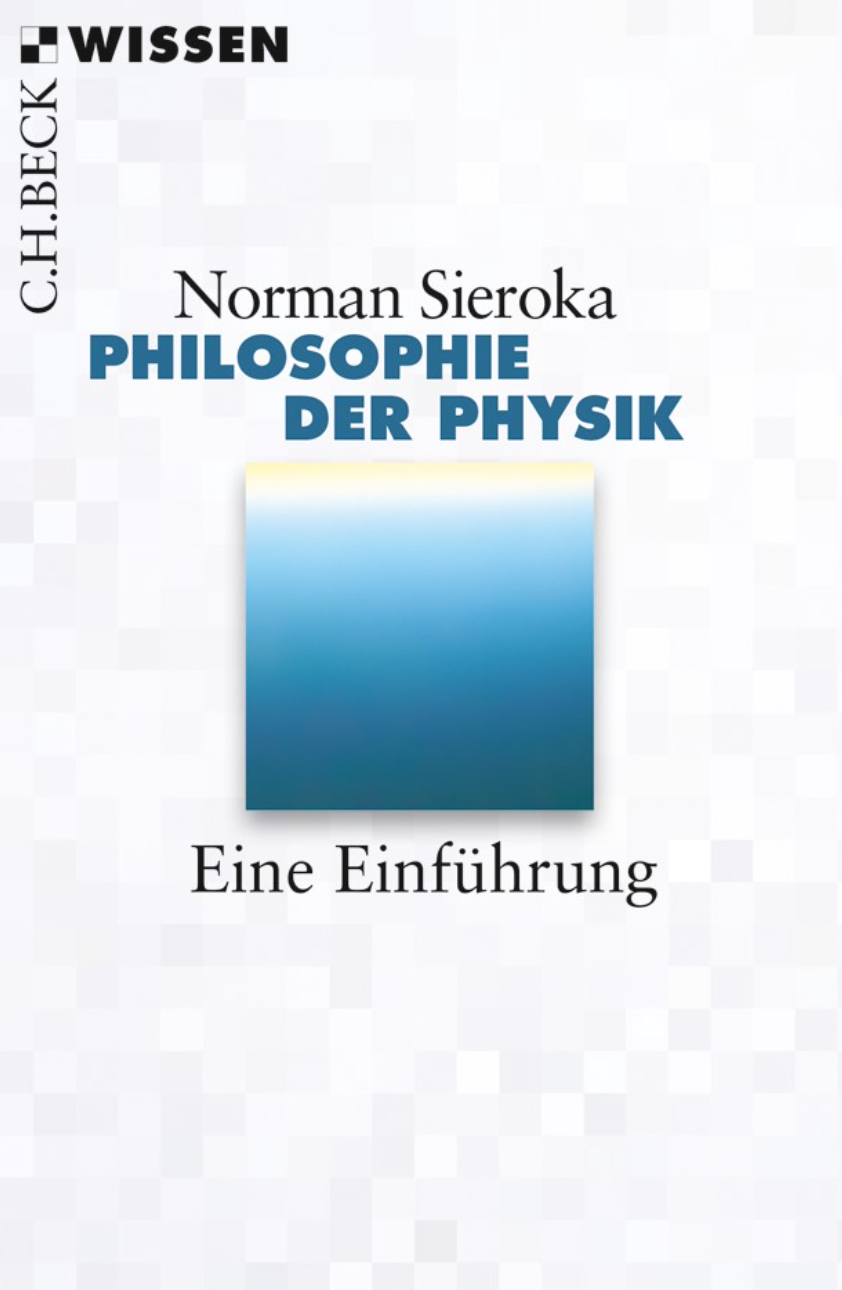 Philosophie der Physik. Eine Einführung
Philosophie der Physik. Eine EinführungThis volume offers a systematic and generally understandable introduction to philosophical questions in physics and its historical development. It begins with a presentation of important stages in the history of physics in antiquity, the early modern period and the past two centuries, and uses them to illustrate central epistemological features of physics. It discusses typical explanatory strategies, the role of experiments and predictions, the procedure for forming concepts and theories and the importance of mathematics.
-
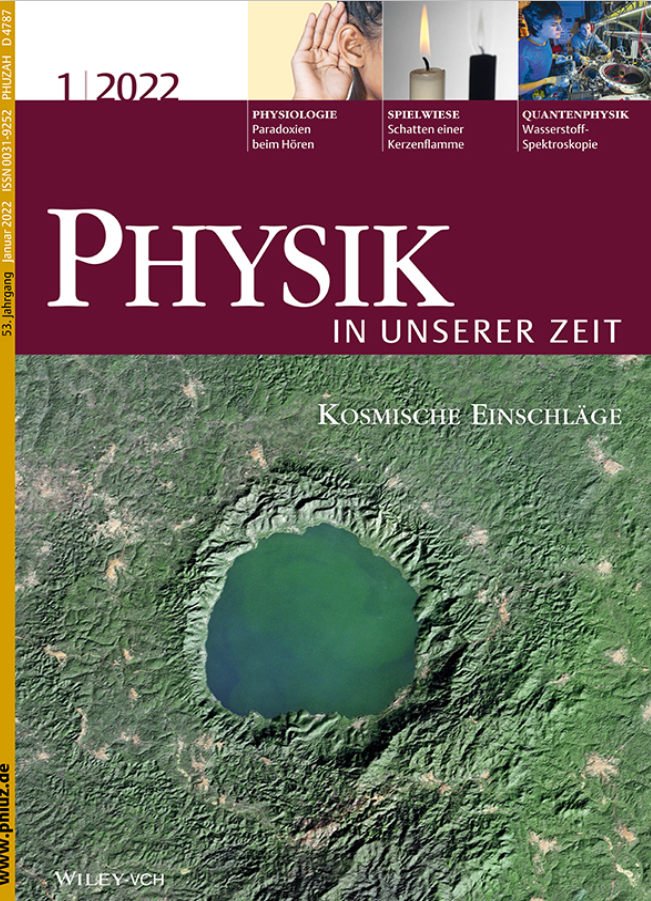 Paradoxien beim Hören
Paradoxien beim HörenDealing with auditory oddities and ambiguities is not only entertaining, it is also an important driver for basic auditory research. The same acoustic stimulus can actually be perceived in different ways. We not only hear “with our ears”, but various other physical, physiological and cultural factors also play an important role. This directly gives rise to broader philosophical questions, for example on perception – and the enduring appeal of pieces of music is also based in many places on such ambiguities [13].
-
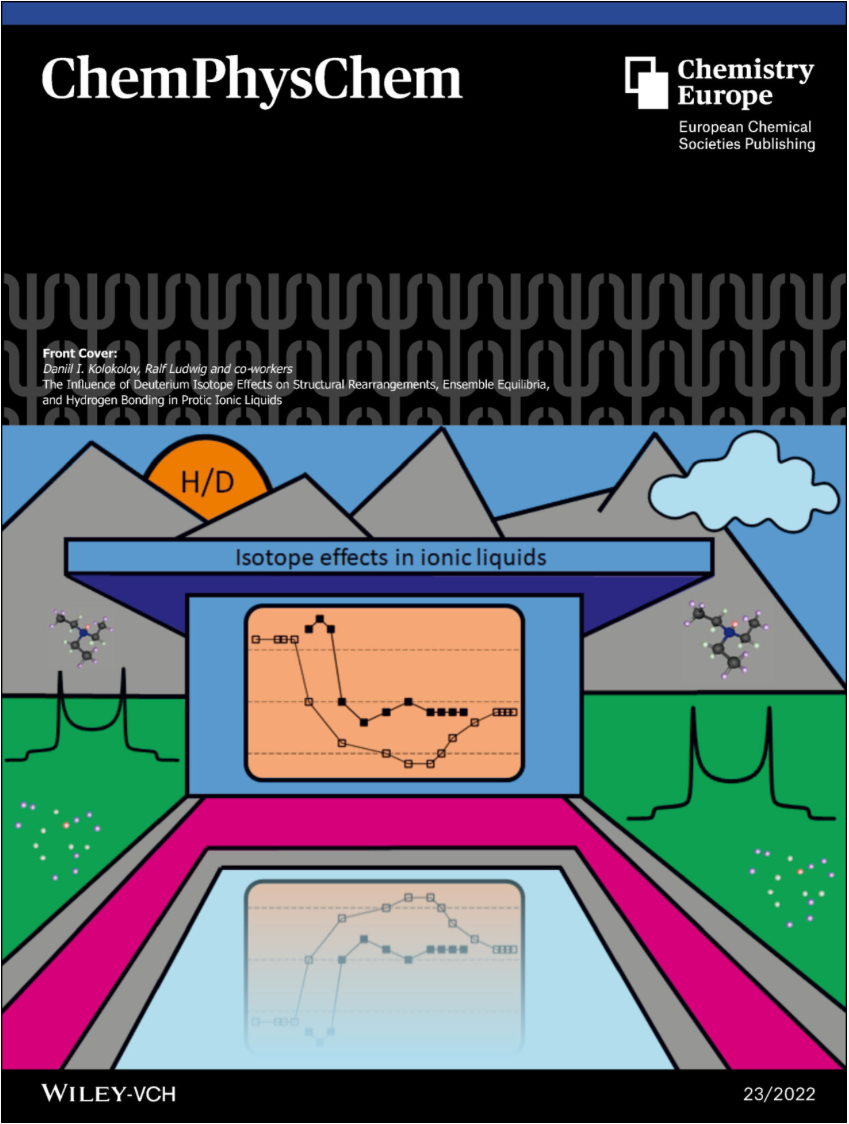 Can a Finite Chain of Hydrogen Cyanide Molecules Model a Crystal?
Can a Finite Chain of Hydrogen Cyanide Molecules Model a Crystal?When calculating structural or spectroscopic properties of molecular crystals, the question arises whether it is sufficient to simulate only a single molecule or a small molecular cluster or whether the simulation of the entire crystal is indispensable. In this work we juxtapose calculations on the high-pressure structural properties of the (periodic) HCN crystal and chains of HCN molecules of finite length. We find that, in most cases, the behavior of the crystal can be reproduced by computational methods simulating only around 15 molecules. The pressure-induced lengthening of the C−H bond in HCN found in calculations on both the periodic and finite material are explained in terms of orbital interaction. Our results pave the way for a more thorough understanding of high-pressure structural properties of materials and give incentives for the design of materials that expand under pressure. In addition, they shed light on the complementarity between calculations on periodic materials and systems of finite size.
-
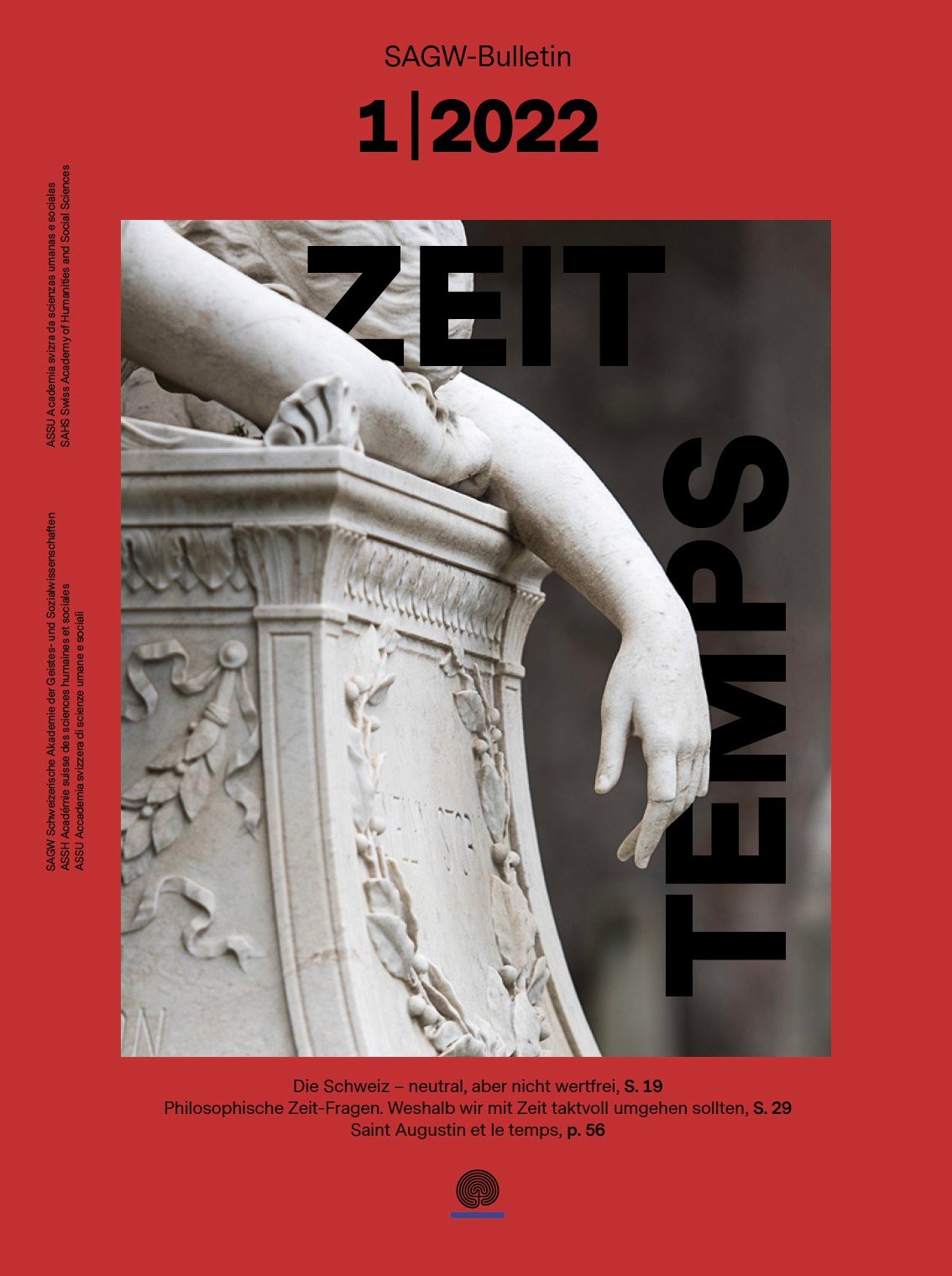 Philosophische Zeitfragen. Weshalb wir mit Zeit taktvoll umgehen sollten
Philosophische Zeitfragen. Weshalb wir mit Zeit taktvoll umgehen solltenZeit spielt eine grundlegende Rolle im menschlichen Leben. Zu bestimmen, was ihr Wesen ausmacht, ist bekanntermassen nicht einfach – und ist vielleicht auch nicht die philosophisch interessanteste Herausforderung. Wichtiger scheint es, verschiedene Lebensbereiche zunächst auf ihre unterschiedlichen Zeitauffassungen hin zu untersuchen und sich zu fragen, wie sie sich aufeinander beziehen. Für unseren Umgang mit Zeit ist das Entscheidende: Wie lassen sich Ereignisse sinn- und taktvoll aufeinander abstimmen?
-
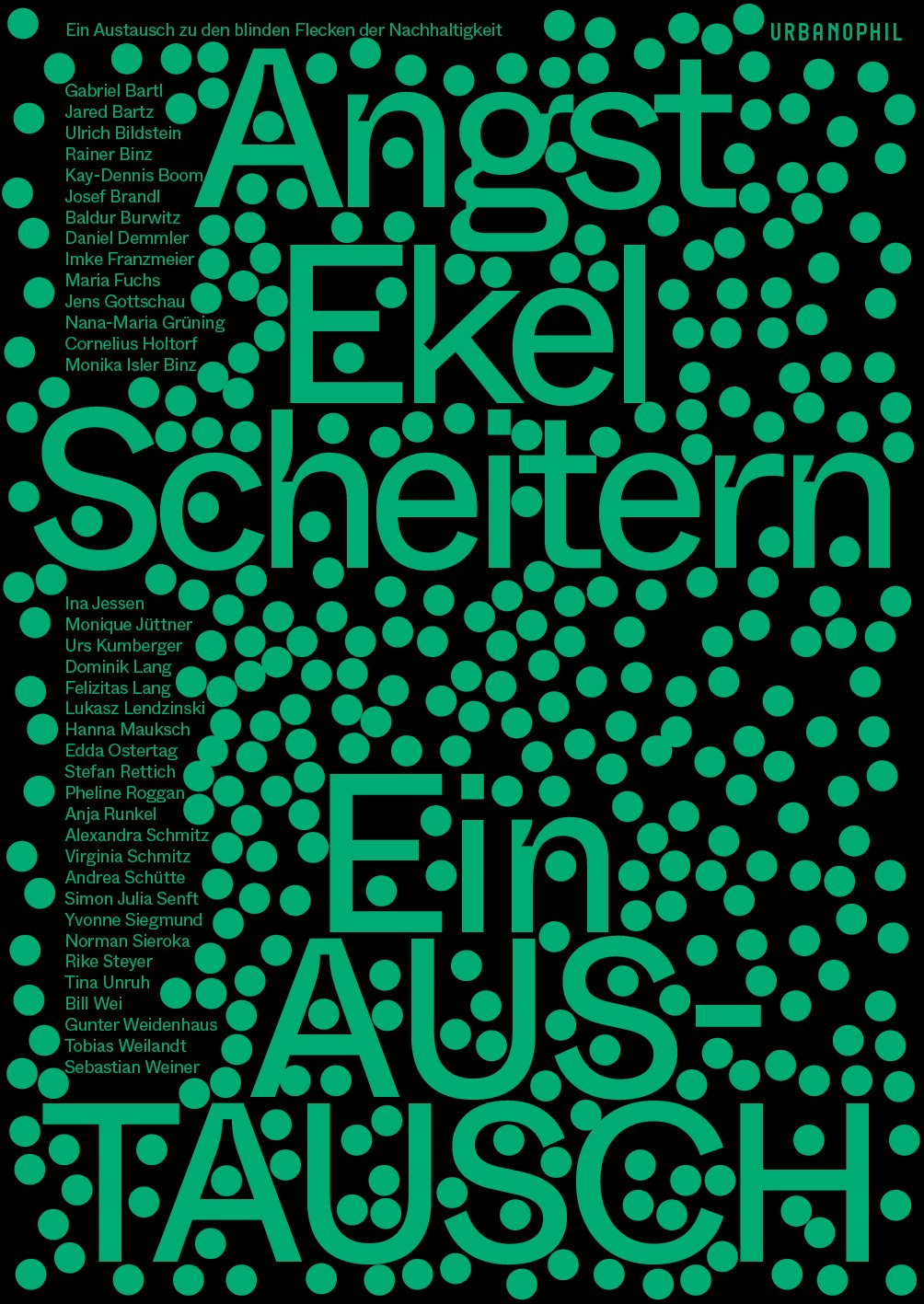 Ritual und Experiment – Versuch einer Annäherung an die Natur
Ritual und Experiment – Versuch einer Annäherung an die NaturThe relationship between man and nature is subject to constant change. While nature was long considered threatening and alien, the idea of man in harmony with nature developed in the 16th century. Another profound change in this relationship has been accompanied by industrialisation and rapid urbanisation since the 19th century. The relationship between humans and nature is becoming unbalanced and jeopardises the survival of many species, including humans, on this planet. The environmental debate that has been ongoing since the 1960s has only been able to change this to a limited extent. Rather, there seems to be a persistent inability – a ‘blind spot’ – to (re)establish and maintain socio-ecological relationships with our habitat. The urgent question arises as to how we can get closer to nature again and which strategies appear helpful for this.
-
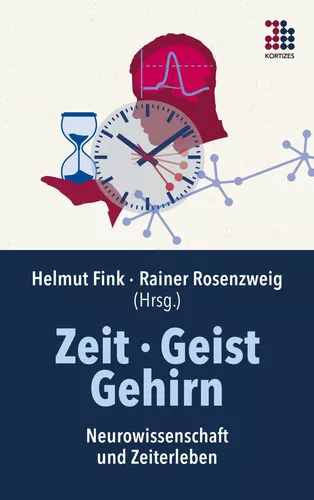 Zeitliche Vielfalt – Erscheinungsformen von Zeit und die Aufgabe der Philosophie
Zeitliche Vielfalt – Erscheinungsformen von Zeit und die Aufgabe der PhilosophieProceedings of the symposium Zeit · Geist · Gehirn. Neurowissenschaft und Zeiterleben 2021.
-
 Making a Theme Audible. Imparting Non-Discursive Knowledge in Natural Philosophy by Means of Poetry and Aphorism
Making a Theme Audible. Imparting Non-Discursive Knowledge in Natural Philosophy by Means of Poetry and AphorismThis paper is about poetry as a vehicle for imparting knowledge in natural philosophy. It discusses the epistemological and cultural background against which early Greek thinkers such as Parmenides and Empedocles composed in verse, and it explores the rationale why poetry was thought to be a preferred means for transmitting important and often non-discursive knowledge about nature—in other words, how poetry was meant to make “a philosophical theme audible,” to prompt an insight that organizes a large field of experience. Much later, related assumptions find a (last) heyday in Goethe’s attempt to write a Naturgedicht in the vein of Lucretius. Even though new insights especially from classical German philosophy influenced Goethe, his reasons for writing nature poetry show striking continuities with those of his ancient peers. The paper ends with a brief look at later attempts to “make philosophical themes audible” in the context of an ever-increasing fragmentation of knowledge.
-
 Paradoxien des Auditiven? Ambiguitäten und Diskrepanzen beim Hören und in der Musik
Paradoxien des Auditiven? Ambiguitäten und Diskrepanzen beim Hören und in der MusikIn the psychology of music and basic auditory research, there is talk of “paradoxes of hearing” or “musical paradoxies” (Deutsch 1986, 275-280; Utz 2015, 22-52; Deutsch 1995). But can auditory impressions really be paradoxical? What exactly should it mean what exactly should it mean to “hear paradoxes” or even to “hear paradoxically”? We will pursue this question in the following and in doing so, we will first define the concept of paradoxia for the present context – namely in the sense of ambiguity and discrepancy ambiguity and a discrepancy. We will then develop a typology, which at the same time shows the fundamental significance that ambiguities have for music – or more precisely: for the enduring appeal of pieces of music.
-
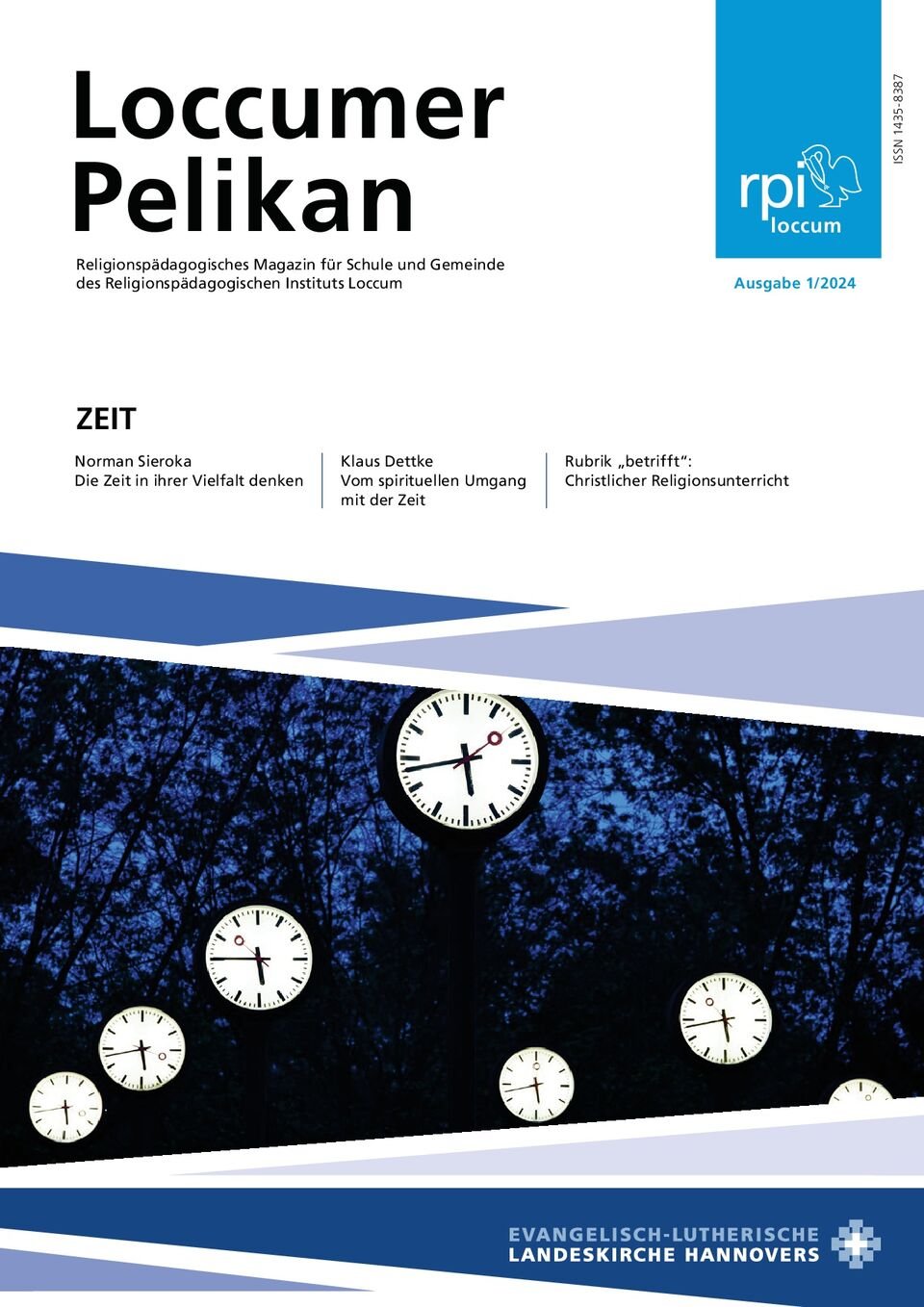 Die Zeit in ihrer Vielfalt denken – Anmerkungen aus philosophischer Perspektive
Die Zeit in ihrer Vielfalt denken – Anmerkungen aus philosophischer PerspektiveCorona infections, childhood memories, presidential elections, avalanches: everything we experience and witness and all external events can be ordered in time – according to their succession. Time is therefore an ordering parameter, or dimension, of events. There is disagreement about what else time is on the “battlefield of eternal disputes” – as Kant once called philosophy (or more precisely: metaphysics): Is time relative or absolute? Is it continuous or discrete? Is it a substance in its own right or is it constituted by relationships between events?
-
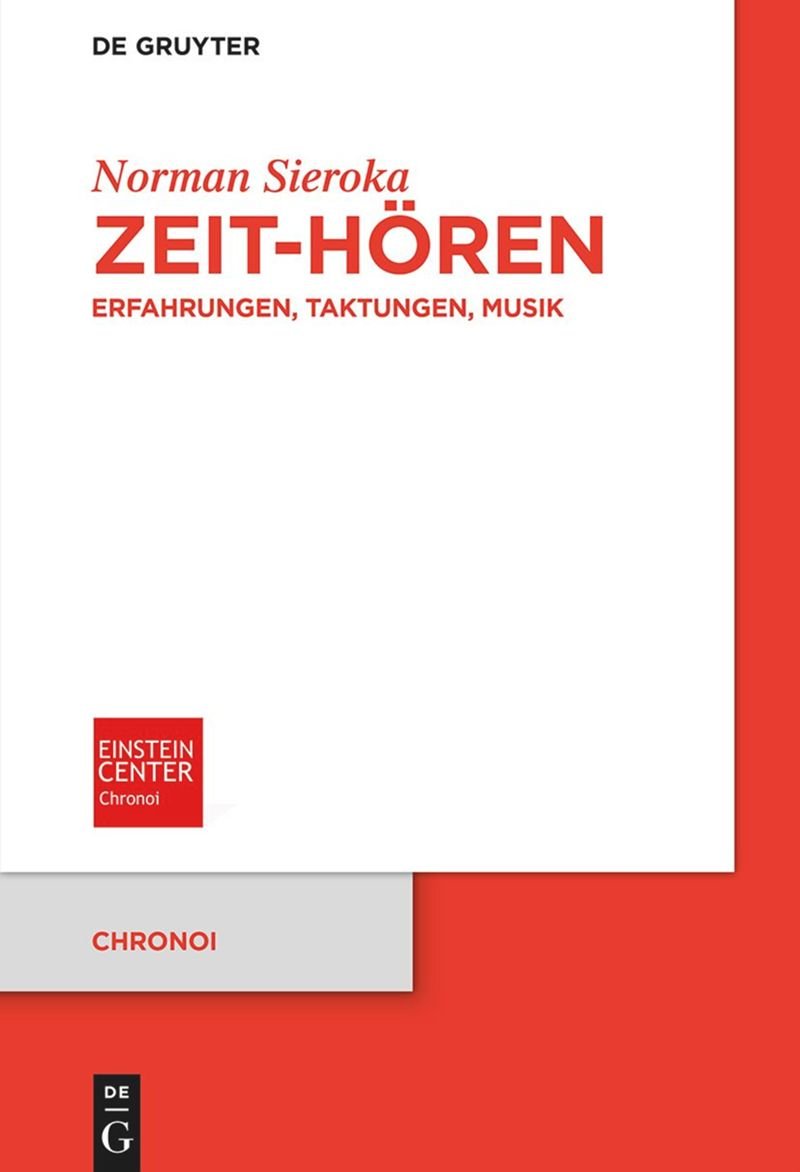 Zeit-Hören: Erfahrungen, Taktungen, Musik
Zeit-Hören: Erfahrungen, Taktungen, MusikThis volume shows why it is misleading to view time as an object, exploring the insights that can be gained from analogies between sequences and by comparing event timings. Incorporating extensive references to music and, more broadly, to the act of listening provides illuminating glimpses into these fundamental structural properties of reality.
-
 Die Region Bremen. Herausforderungen der regionalen Verflechtung der Stadt Bremen mit ihrem niedersächsischen Umland
Die Region Bremen. Herausforderungen der regionalen Verflechtung der Stadt Bremen mit ihrem niedersächsischen UmlandArbeit und Wirtschaft in Bremen (43).
-
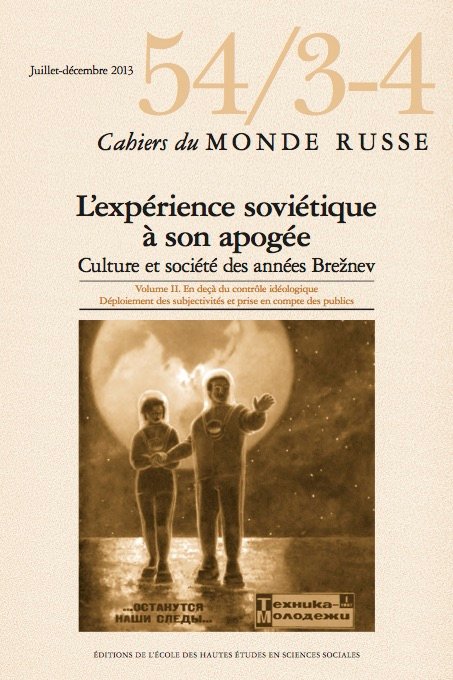 Les frontières du dicible. Du dialogue au silence: Les relations d’Andrej Saharov avec Hrušcev et Brežnev.
Les frontières du dicible. Du dialogue au silence: Les relations d’Andrej Saharov avec Hrušcev et Brežnev.This article describes the historical context that was decisive in Saharov’s commitment to warning party leaders of the dangers of the H-bomb and calling on them to respect human rights. He also attempts to explore the different ways in which Hruščev and Brežnev approached Saharov’s criticisms. Not only does he examine the three stages of the KGB model – educate, warn and only finally arrest renegades – he also sheds light on Andropov’s repeated appeals to Brežnev to speak with Saharov. Although Saharov, too, was keen to talk to Brežnev, the meeting between the two men never took place. In the end, it was against the backdrop of the Cold War that the Politbjuro decided on the best time to get rid of Saharov, doing as little damage as possible to the prestige of the Soviet Union, and thus re-establishing the limits of the dictable.
-
 „Sascha, ich würde Dir gern glauben, aber versteh auch Du mich …“. Breschnew, Dubček und die Frage von Kadern und Vertrauen im Konflikt um den Prager Frühling 1968
„Sascha, ich würde Dir gern glauben, aber versteh auch Du mich …“. Breschnew, Dubček und die Frage von Kadern und Vertrauen im Konflikt um den Prager Frühling 1968This article focuses on the question, which kind of diplomacy we have to deal with within the Warsaw pact states. Taking the invasion in Czechoslovakia in 1968 as an example, three theses are discussed: (1) Brezhnev transferred his inner-party concept of „trust in cadres“ and his „scenario of power“ based on trust to foreign politics and treated Dubček as a client whom he addressed in a patrimonial and familiar way. (2) He lost faith in Dubček when the latter established a new democratic discourse denying the central power of the party. (3) The diplomatic language within the Warsaw pact states referred more to socialist common values and party discipline than to the language and setting of international meetings with third party states.
-
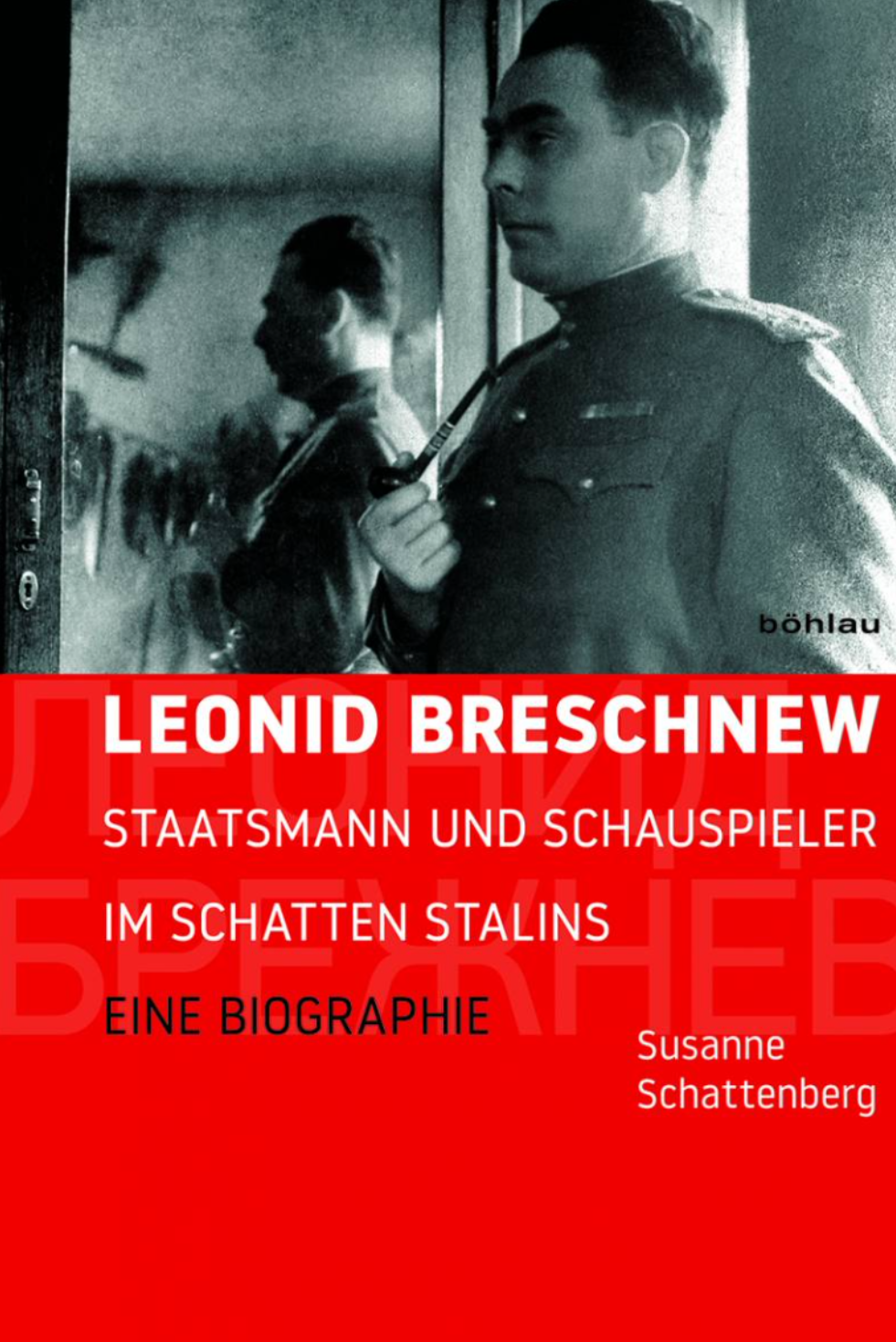 Leonid Breschnew. Staatsmann und Schauspieler im Schatten Stalins. Eine Biographie
Leonid Breschnew. Staatsmann und Schauspieler im Schatten Stalins. Eine BiographieLeonid Brezhnev was Chairman of the CPSU from 1964 to 1982 and shaped the development of the Soviet Union for almost two decades. Contrary to what had long been claimed in the West, Brezhnev was not a hardliner or restalinizer, but had himself suffered under Stalin and seen so much suffering that he declared prosperity for all to be the general line of the party. The horrors he had experienced in the Second World War led him to seek a balance with the West. Brezhnev mimicked the Western statesman and was accepted by his partners as one of their own. But when Georges Pompidou died in 1974 and Willy Brandt and Richard Nixon resigned, Brezhnev found himself faced with the ruins of his policy of détente. For, as no one in the West suspected, there was no change of policy in the Kremlin. Stress and insomnia led Brezhnev into a pill addiction that further ruined his peace efforts: the invasion of Afghanistan by Soviet troops in 1979 was decided by a Politburo troika without him.
A man in his time: Based on numerous previously inaccessible sources, Eastern European historian Susanne Schattenberg presents the first academic biography of Leonid Brezhnev on the 35th anniversary of his death in November 2017.
-
 Natalja Gorbanewskaja. Graphic Novel
Natalja Gorbanewskaja. Graphic Novel“She was a poet as great as Joseph Brodsky and a human rights activist as fearless as Andrei Sakharov. Unlike Brodsky, however, she did not receive the Nobel Prize for Literature, and unlike Sakharov, she did not receive the Nobel Peace Prize. However, her name is associated with a unique event in the Soviet Union: On August 25, 1968, she and seven other young people came to Red Square to demonstrate openly against the regime – and against the suppression of the Prague Spring by tanks from the Soviet Union and other Warsaw Pact countries.”